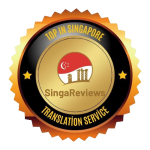
Sustainability Reporting Grants for SMEs: How to Get Funded for ESG Reporting in Singapore
Most companies treat ESG reporting as a chore, viewing it as another regulatory hurdle to clear. That is the wrong mindset. In Singapore, proper ESG implementation is not merely a matter of compliance; it gives you a competitive edge.
If you’re still considering whether to take ESG seriously, we recommend reading our comprehensive breakdown, Sustainability Grants for SMEs: How to Get Funded for ESG Reporting in Singapore, where we discuss practical strategies and funding options to help SMEs embrace sustainability for business growth.
Here’s what’s happening: investors are shifting their money towards sustainable businesses. Green financing is rising, with banks offering better loan terms to companies with strong ESG performance. Customers are making purchasing decisions based on corporate values, and even hiring talent is becoming an ESG matter, as top professionals want to work for companies that stand for something.
Singapore is not taking sustainability lightly. The SGX (Singapore Exchange) has already made ESG (Environmental, Social, and Governance) disclosures mandatory for listed companies, and it is only a matter of time before more businesses, both large and small, are required to do so.
To understand Singapore’s evolving ESG landscape and how your business can stay ahead, explore Get What Singapore Is Doing for ESG: Key Developments and the Path Ahead. This article offers insights into regulations, frameworks, and where sustainability reporting requirements are heading next.
Regulators want complex data, not just sustainability statements. Investors are demanding transparency, and without a solid ESG strategy, you are losing credibility and access to capital.
ESG is about securing better business opportunities rather than simply avoiding penalties. Companies that take ESG seriously can unlock new revenue streams, qualify for government incentives, and build stronger partnerships. Discussing ESG reporting can help your company qualify for government incentives and benefits. The Singapore government actively encourages SMEs to do ESG reporting through funding schemes.
Not sure which ESG framework to adopt for your first report or grant application? Six Major ESG Frameworks You Need to Know: Which One Is Right for You? provides a comparative overview to help you make an informed decision.
If you’re not taking advantage of this, you’re leaving money on the table. Let’s break down the ESG grants available in Singapore, how to qualify, and why innovative businesses are seizing this opportunity now.
What Is the ESG Grant in Singapore?
Singapore offers several ESG grants to support businesses in their efforts to report on sustainability and comply with regulations. The primary grant is the Sustainability Reporting Grant (SRG), launched by Enterprise Singapore and the Economic Development Board in November 2024.
The SRG covers 30% of qualifying costs up to S$150,000 for Singapore-incorporated companies producing their first ISSB-aligned sustainability report. Eligible companies include SGX-listed and non-listed companies with annual revenue of at least S$1 billion and total assets of at least S$500 million. Qualifying costs include external consultancy, assurance services, equipment, software, and workforce training.
For smaller SMEs that do not meet the SRG threshold, alternatives include the Enterprise Development Grant (EDG), which offers up to 70% funding for sustainability initiatives, and the Enterprise Sustainability Programme (ESP), with S$180 million allocated to help 6,000 SMEs build sustainability capabilities over four years. The SME Sustainability Reporting Programme provides up to 70% cost coverage for advisory support from November 2024 to March 2026.
Additionally, the SAGE Programme (Sustainability-linked Advisory, Grants and Enablers) by UOB and EnterpriseSG helps SMEs defray up to 85% of ESG platform and advisory service costs while providing preferential loan rates for achieving sustainability performance targets.
What Does the SRG Cover?
The grant defrays costs related to:
- External consultancy fees: If you need experts to help develop an ISSB-aligned sustainability report.
- External assurance costs: This covers verification for Scope 1 & 2 Greenhouse Gas (GHG) emissions to ensure accurate reporting.
- Equipment and software: ESG reporting tools, data tracking systems, and any necessary technology for compliance.
- Manpower Training: Upskilling Your Permanent or Contract Employees in Sustainability Reporting and Compliance.
However, before you get too excited, there are some restrictions to keep in mind:
- Group applications are not allowed. Each company must apply individually.
- Retrospective applications are rejected. If you’ve already started the project, signed a contract, or made payments, you’re too late to apply.
This grant presents a significant opportunity for businesses seeking an advantage in ESG reporting before regulations become more stringent, provided they apply before commencing their project. Companies that wait until reporting becomes mandatory must bear the full cost themselves.
Who Qualifies for the Sustainability Reporting Grant in Singapore?
Not every business in Singapore is eligible for the ESG grant. Here’s the breakdown:
- You must be a Singapore-incorporated company.
- You must either:
- Be listed on the Singapore Exchange (SGX), or
- Have an annual revenue of at least S$100 million.
If you do not reach the S$100 million revenue mark, do not worry. There are other sustainability grants available, and we will discuss them shortly.
This threshold means smaller SMEs don’t automatically qualify for SRG, but that doesn’t mean they’re out of options. For businesses that don’t meet the revenue requirement, other funding programmes can help offset ESG costs (we’ll discuss this further in a moment).
How to Apply for ESG Grants in Singapore (Step-by-Step Guide)
Don’t let bureaucracy deter you. Here’s how to secure your funding:
Step 1: Assess Your Eligibility
Check if you qualify for the Sustainability Reporting Grant (SRG). If not, explore EDG or ESP as alternatives.
Step 2: Gather Your Costs & Business Case
- Estimate the cost of your ESG reporting.
- Identify key areas of sustainability reporting you’ll need help with (data collection, consultancy, report writing).
Step 3: Engage ESG Consultants (If Needed)
- Some businesses hire sustainability consultants to ensure compliance with international reporting standards and regulations.
- If you’re working with a firm, like Elite Asia, the ESG consultation fees can be included in your grant application.
But it’s not just about following rules—your sustainability report should be impactful and engaging. For tips on crafting reports your stakeholders will actually read, check out How to Design an ESG Report That Actually Gets Read.
Elite Asia offers comprehensive ESG services, from consultation and benchmarking to selecting the appropriate framework and ESG reporting, to ensure your business meets international standards.
Step 4: Submit Your Application via Enterprise Singapore
- Head to Enterprise Singapore’s website and submit the relevant application.
- Be clear and detailed about your project scope, as vague applications are often delayed or rejected.
Step 5: Implement, Report, and Claim Your Funding
- Once approved, start your ESG reporting process.
- Ensure you track expenses properly, as grants are only disbursed after the successful completion of the project.
Worried about the complexity of ESG reporting? Our guide, How to Make the ESG Reporting Process Less Painful, demystifies the steps and shares practical hacks for smoother compliance.
Other ESG Grants in Singapore for SMEs
If your company does not reach the S$100 million revenue mark, do not worry. Singapore is not leaving smaller businesses behind. There are still government-backed sustainability grants available for SMEs, covering initiatives from ESG capability development to green business projects.
1. Enterprise Development Grant (EDG)
One primary funding source is the Enterprise Development Grant (EDG). Unlike SRG, this grant does not require a massive revenue threshold and provides up to 50% funding for general business projects and up to 70% for sustainability-related initiatives. SMEs can still access funding to kickstart ESG efforts, integrate sustainable business practices, and develop reporting capabilities.
2. Enterprise Sustainability Programme (ESP)
The Enterprise Sustainability Programme (ESP) is also an S$180 million initiative designed to help at least 6,000 SMEs build sustainability capabilities over four years. ESP supports capability-building, training, and sustainability certifications, unlike other grants that focus on reporting costs. This makes it ideal for SMEs that want to integrate sustainability into their operations but are not yet ready for full-scale ESG reporting.
Don’t Wait Until ESG Reporting Becomes Mandatory
Currently, ESG reporting for SMEs in Singapore is optional; however, this will likely change. The direction is clear: Singapore is tightening sustainability regulations, and businesses that ignore ESG today will scramble to comply tomorrow.
Regulations are not the only reason to act fast. Investors and banks are already prioritising ESG performance. Companies with strong ESG strategies get better loan terms, access to green financing, and increased investor interest. Conversely, businesses that fail to show sustainability commitments may miss out on funding and high-value partnerships.
It is also worth noting that government grants are not permanent. Once ESG reporting becomes mandatory for all businesses, funding programmes like SRG will likely become more restrictive or disappear altogether. Late adopters will pay full price for compliance.
Need help navigating ESG grants and reporting? Elite Asia provides comprehensive ESG services, encompassing consultation, benchmarking, and complete ESG reporting. Whether you need benchmarking, framework support, or sustainability strategy development, we can help you meet global ESG standards while securing government funding.
If you want even more grant-focused tips and step-by-step instructions, revisit our resource, Sustainability Grants for SMEs: How to Get Funded for ESG Reporting in Singapore, for the most up-to-date insights and support.
Now’s the time to act, report, and get funded. Will your business seize the opportunity?










